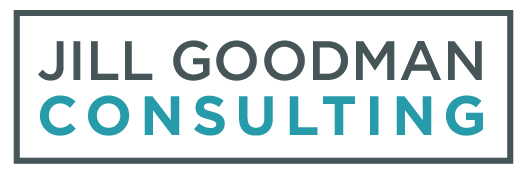Alumni Relations 101
An independent school’s alumni can represent two vital components to future success: the lion’s share of fundraising dollars and an extraordinary networking opportunity that is an admissions value proposition. With so much at stake, it's no surprise that schools want to be sure that their alumni program is as healthy as possible. I was approached by more than one independent school association to create a workshop for new alumni directors, or for school administrators who would like to start an alumni program or revitalize a waning one.
To add to my base of knowledge on the subject, I launched a research study and interviewed 13 alumni directors across the US and in the UK. They represent schools of every size, co-ed and single-sex, faith-based and secular, young (46 years old) and old (503 years old), and directors who are alumni of the school and those who are not. I enjoyed each conversation and am grateful for the directors’ time and insight!
The alumni director cannot work in a silo. To be most effective, he or she must forge a meaningful and productive working relationship with nearly every department at school and people from many constituencies. It's easy to get distracted and lose sight of the priorities that will truly build the program. With the collected wisdom of my 13 directors, I developed the Top Five Priorities to focus on in the first two years.
Assess your data. Clean data and an effective data management system make up the spine of the program. With clean and up to date data, you can segment communication to alumni based on a variety of criteria designed to engage them. Data and communications are intrinsically linked, and poor or incomplete data must be addressed. Schools report using append services and low tech methods like asking veteran teachers to reach out to their former students to ask them to fill out an information form. On the other hand, don't let missing data hold up your progress. Use what you have to reach out to alumni to reconnect while working to spread the word via social media and key alumni from each class.
Learn the culture of the school. Even if you are alumni of the school, take time to learn the current culture. It will take the better part of two years to speak to representatives from all the constituencies, to sit in on classes, to take the admissions tours, to attend plays, sporting events, and other cherished traditions, to look through yearbooks and archives, and to develop relationships with the administrators of your school. It is critical to future support of the school that you understand the current culture and priorities and learn how that fits in a continuum with the school’s history.
What’s the goal of the Alumni Program? Your program will be most successful if all administrators are on the same page. The purpose of the alumni program through the eyes of the development department or the eyes of the admissions department will be very different. By fostering mutual understanding and buy-in from your fellow administrators, you can all move together toward the stated goal.
Who are your Alumni Champions? The more robust your network of engaged alumni, the more likely it is that you will achieve your school’s goals for the alumni program. How do you find your people; the ones that will champion your program and move it forward?
· First, get to know your future alumni. Take a tangential supervisory role or otherwise involve yourself in the junior and senior classes. That will allow you to identify future alumni leaders and involve them in the alumni board or alumni activities while still a current student.
· Second, meet as many involved alumni as possible. Don’t just survey them, call them on the phone or arrange a video meeting to find out how they’ve been and how your school and its network can help them in their professional journey.
· Third, involve veteran and retired faculty in connecting to alumni. Most teachers keep in touch with former students, and a personal invitation from a beloved teacher is the best way to invite alumni to an event or to cultivate a leadership role.
Evaluate programs and ask for new ideas. Before making ANY changes to current alumni programs or events, experience each one and ask for input from participants and stakeholders afterward. Be sure the goal of each event was clear and evaluate it based on desired outcomes. When you have gathered data on the totality of the existing program, you can compare it with the school’s overarching goals and begin to make changes or additions to the way things have been done in the past.
I want to extend a huge thank you to the alumni directors who agreed to be interviewed for this project!
Blake School (MN), Annie Linvill Seidel, '85, P'22, P'24, Director of Alumni and Parent Engagement
Bryn Mawr School (MD), Deanna Boyd '05, Alumnae Director
Calvert School (MD), Carly Slagel, Director of Alumni Relations
Canterbury School (Ft. Myers, FL), Lea Pascotto '95, Director of Canterbury Fund and Alumni Relations
Central Catholic High School (Pittsburgh, PA), Brandon Haburjak '06, Director of Alumni Engagement & Giving
Charlotte Country Day School (NC), Danielle Ferguson, Director of Alumni Relations
Fayerweather Street School (MA), Sufia Jamal, Associate Director of Development
Francis Parker School (CA), Annie Sawyer, Associate Director of Alumni Relations and Development
Greenhill School (TX), Katie Young, Director of Alumni Relations
Indian Creek School (MD), Anne Crossman Engles '97, Director of Alumni Engagement
Manchester Grammar School (UK), Simon Jones, Director of Development
St. Edward High School (OH), Kaleb Kaschalk '07, Alumni Manager
St. Paul’s School (MD), Charley Mitchell '73 P'10, Director of Alumni Relations
The author, Jill Goodman, is a consultant working with independent school leaders to advance their school’s mission, enhance their processes, and bolster their skills.



